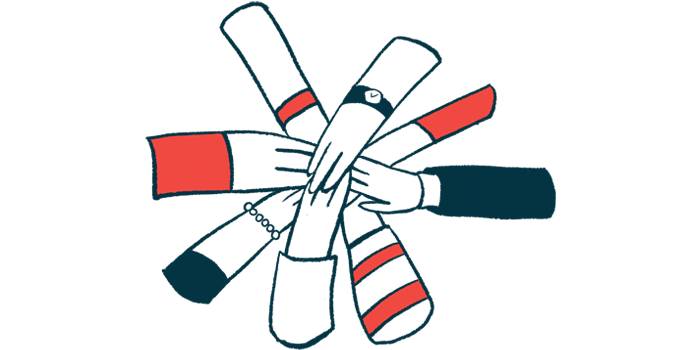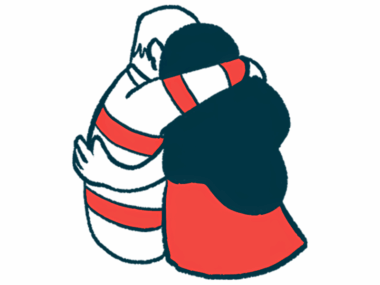Former Parkinson’s Caregivers Could Help Those Now in That Role
Many of carers asked voice interest in 'peer-to-peer' support program
Written by |

Former caregivers could serve as a helpful resource in supporting current caregivers of people with Parkinson’s disease, a study reported.
The intent is to “provide guidance for developing peer-to-peer support programs, incorporating former carers,” its researchers wrote.
The study, “Using former carers’ expertise in peer support for carers of people with Parkinson’s Disease,” was published in npj Parkinson’s Disease.
As Parkinson’s disease progresses and a person becomes less able to perform day-to-day tasks independently, it’s common for loved ones, particularly spouses or children, to step into the role of informal caregiver to help the patient. This role can be immensely stressful, and prior research has shown that many informal Parkinson’s caregivers end up feeling isolated and under strain as they navigate its challenges.
This research has shown a clear need to deliver better support for people caring for Parkinson’s patients — but there is little consensus on how best to give this support.
‘Missed opportunity’ in Parkinson’s caregiver support system
In the study, a quartet of scientists in The Netherlands highlight what they see as a “missed opportunity” when it comes to delivering support to caregivers.
“During the care process, informal carers of persons with [Parkinson’s] gain unique knowledge from their own practical experiences in dealing with the challenges of [Parkinson’s] care. Yet, this relevant and unique knowledge often remains unused, and in fact disappears entirely once the loved one with [Parkinson’s] has passed away,” the researchers wrote.
They suggested that former Parkinson’s caregivers could act as peers and mentors for current caregivers, sharing their acquired knowledge and expertise. In addition to helping support current caregivers, those once in that role could find it rewarding to share their experiences and feel part of a community.
To assess how this support network setup might be received, the researchers conducted a survey of 141 current caregivers and 15 former caregivers. Most of the respondents were women; most current caregivers were partners of someone with Parkinson’s, while the former caregivers were about evenly split between partners and children of someone with Parkinson’s.
A near majority of current caregivers (45%) were offering support both during the day and night; help was needed only during day hours for 28% of this group. A majority of the former caregivers (60%) had helped to care for a person with Parkinson’s for more than 10 years.
Although most caregivers had sources of support — ranging from healthcare professionals to friends, family, and neighbors — many expressed a desire for more support in navigating difficult issues, such as finding a balance between caring for themselves and their partner, dealing with how the disease alters the dynamics of a relationship, and recognizing and managing specific Parkinson’s symptoms.
“It is not about the support, but about being seen and heard. The focus is on my partner — I often have to take action in order to be heard as well in a conversation,” one caregiver wrote.
“It is a search for the right information and tools. So, often I have the feeling that I need to re-invent the wheel by myself,” said another.
Slightly more than half (50.4%) of current caregivers said they would be interested in having a former caregiver share their experiences and knowledge.
“I want to talk freely with someone who knows my situation. I would hope for some advice, for understanding, for a restful arm around me, for someone to tell me that I cannot do more than my best,” one caregiver said.
Among those not expressing an interest, many stated they were not currently in a position where they felt they needed much additional support.
Nearly all former caregivers said they would be interested in sharing their experiences with current caregivers. The two exceptions both had been recently bereaved, and said they felt it was too soon for them to have such discussions.
“I believe that I have valuable experience to provide carers as well as the person they care for the opportunity to make choices that they otherwise would avoid and which they might regret in a later stage,” one former caregiver said.
For former carers, most (92%) said their main motivation for offering peer support was that current informal carers could benefit from shared experiences. This was followed by a desire to use their knowledge and skills to support current caregivers (69%) and their experiences of a lack of support when they were providing informal care themselves (30%).
When asked about the potential design for a program connecting former and current caregivers, most respondents in both groups expressed interest in social connections, ranging from getting coffee or going for a walk to an organized support group meeting or lecture. Both groups also highlighted the importance of having other things in common to form these connections.
Study findings, the researchers concluded, “indicate the potential of former informal carers as peers to enhance support for informal carers who are currently taking care of a loved one with [Parkinson’s], by sharing their own experiences and knowledge.”



